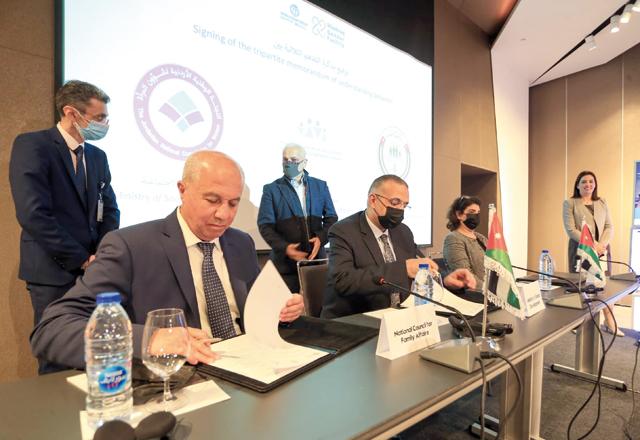You are here
Study recommends accessible childcare services in Al Hussein Industrial Estate
By Mays Ibrahim Mustafa - Dec 18,2022 - Last updated at Dec 18,2022
AMMAN — A recent study conducted by Better Work Jordan (BWJ) revealed that Syrian and Jordanian garment workers in the Al Hussein Industrial Estate (HIE) lack access to childcare services and facilities.
BWJ is a partnership between the International Labour Organisation (ILO) and the International Finance Cooperation (IFC) that aims to “improve working conditions, enhance respect for labour rights and boost competitiveness” in the garment industry, according to the ILO’s website.
The study is titled “Assess Access to Child Care Services and Facilities for Jordanian and Syrian Garment Workers in Al Hassan Industrial Estate/Irbid”. It surveyed 355 Jordanian and 169 Syrian workers in five different factories in HIE, 71 per cent of which were women.
Article 72 of the Jordanian Law states that a workplace which employs a “number of workers, with at least 15 children under the age of 5”, is required to provide an on-site nursery, according to the study.
If that is not possible, the employer must contribute to covering part of the financial costs of a nursery chosen by workers.
As per the law, both male and female workers who are paid less than JD300 are entitled to JD50 in subsidies for childcare services. However, a 2021 sectoral Collective Bargaining Agreement (CBA) between the Workers Union and Employers’ representatives “enabled employers’ financial contribution to be lowered to JD25 regardless of wage, with a cap of up to four children”, the study said.
The results, which are based on “the answers of 320 respondents who have children younger than 5 years old or are considering having children in the future”, revealed that none of the surveyed workers have access to an institutional nursery at their workplace.
The study also stated that one of the three factories which “triggered the requirement to provide day care facilities or any of its alternatives” had contracted four nurseries in Ramtha, Mafarq, Irbid and Ajloun.
However, “interviewed workers confirmed that they did not use the nurseries, as they are far away from their residencies”, it said.
Employers at the two other factories are resorting to offering their workers the financial subsidy of JD25 per child for “female workers only”, following the aforementioned CBA, it added.
The amount of the subsidy is considered “insufficient”, considering the cost of childcare centres in Irbid governorate, which range between JD50 and JD130. Childcare costs consume around 18 per cent of the household income of a worker with at least one child under the age of five, according to the study.
The data shows that respondents’ average household monthly income was JD378.9, with a range from JD200 to JD900.
As a result, “only 7 per cent of survey respondents mentioned that they are using regulated childcare centres”, while the vast majority are resorting to either paid or unpaid arrangements with family members or friends, the study said.
It also pointed out that “53 per cent of the respondents mentioned taking unpaid leaves to take care of their children and 52 per cent are currently considering quitting their jobs due to the unavailability of childcare services, 70 per cent of which are women”.
Moreover, only 12 per cent of all surveyed workers were aware that they are entitled to childcare services by law, the study showed.
The study’s recommendations included ensuring the proper enforcement of relevant laws and regulations related to providing accessible childcare services for both male and female workers, “building new licensed childcare spaces in underserved areas”, enhancing workers’ awareness of their rights pertaining to childcare services and establishing a “centralised childcare centre” in HIE.
Related Articles
AMMAN — The findings of a study titled “Childcare Services in Jordan: Assessment of Supply and Demand” revealed that low-income households i
AMMAN — A government study has recommended increasing the number of daycare centres connected to private and public sector institutions and
AMMAN — The domestic value added (DVA) of Jordan’s garment, textile and leather (GTL) industry as a share of production output is relatively

















